In Nigeria and Niger are communities bearing identical names. In addition to Ungwar Jummai, there is Illela in Nigeria, as well as Illela Ummani in Niger Republic. Also, there are more Gobirawa in Niger Republic than in Nigeria, and the Daura and Sakkwatanci dialects are spoken across a large part of the former. In addition, the people of Zinder are said to look towards Daura for historical and cultural inspiration. For well over 200 years, large parts of Niger have turned in the direction of Sokoto for spiritual inspiration.
Ahamed Diddiri Ahamed is the district head of MaiAdua in Katsina State. He speaks on the intimate links between Nigeria and Niger. We are in his palace, which has high walls and looks towards the MaiAdua international cattle market.
Hear him: “We have the same history, the same culture. From the existing boundary, you move up till about thirty kilometres or more, and it is all the same history, the same culture and administration. This was how it was before the Europeans came.”
Maradi are Katsina people
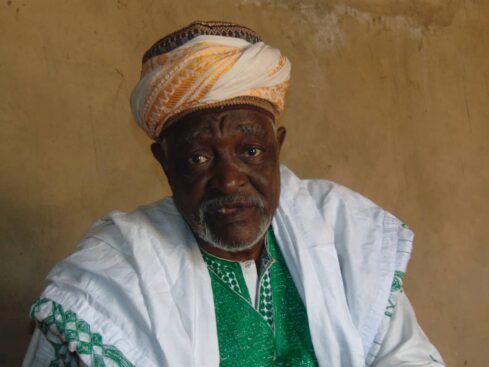
He develops the point, “If you go to Maradi, for example, they will say they are Katsina people. If you go to Zinder, they are Daurawa people. It is about one 100 kilometres or slightly more than that from the Kongolam border to Zinder. It is the same history, but the Europeans came and divided us and said this is French, this is Nigeria.”
Ungwar Jummai
Ahamed, who is also the Galadiman Daura, tells an interesting story: “I will give one example. There is a village called Ungwar Jummai. It is here near us. The Europeans came and divided the village into two. You move northwards you are in Niger, the other group moved southwards and it is in Nigeria. Each group named their village Ungwar Jummai. So you hear of Ungwar Jummai in Niger, and Ungwar Jummai in Nigeria.
They are brothers
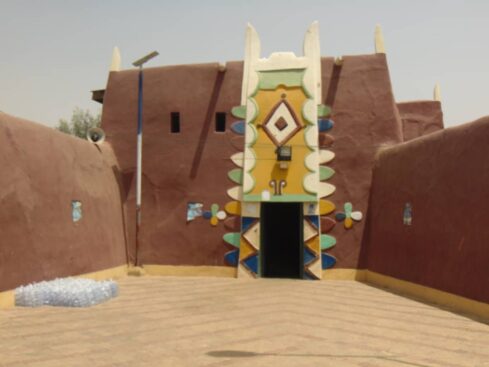
“The village heads of Ungwar Jummai in Nigeria and Ungwar Jummai in Niger are fraternal brothers, they all have the same father and the same mother. So this is one of the best examples I can give to show why I say it is the same culture and the same history shared by these peoples. You can see the relationship. Up till today, intermarriages are taking place. I have an aunt who married in Niger and she has two children, who are my cousins,” he explains.
- Again, CBN sacks over 300 staff
- Mixed feelings in Karaye, Bichi, Gaya, Rano as dethroned emirs leave
Founded in 1895
The district head comments on the history of MaiAdua. “MaiAdua is a very new settlement. It was founded in 1895. It is not very recent but it took advantage of the market. In 1897/1898 they established the market. In 1906 the British and the French decided how to establish the boundary between Niger and Nigeria. In the end, they gave one year for people to understand that there is a boundary. So, they stopped all movements across the border.
An international market
He sheds light on the immediate background to the establishment of the market. “But they agreed that the market will be an exchange point. All goods coming from Nigeria can be sold here, and all goods coming from Niger can be sold here. It thus became an international market. With that old European companies who came here purchasing raw materials, ground nuts, hides and skin, gum Arabic and all those cash products. It became a big exchange area and began to surpass all those smaller towns in the area.”
Illela and Illela Ummani
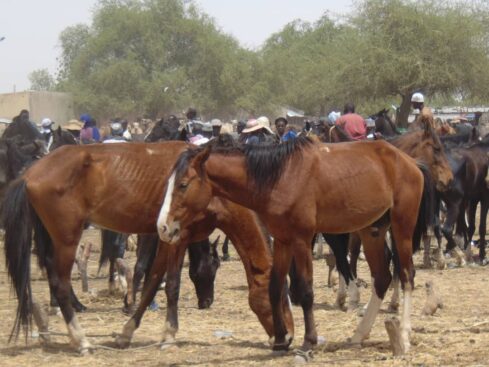
Bello Isa Ambarura represents Illela/Gwadabawa federal constituency of Sokoto State. He speaks on similarly named communities in both Sokoto State and Niger Republic. “If you move to Niger there is also another Illela there. We call it Illela Ummani. It is in Tahoua State. There is no day, like during the weekend you won’t hear that somebody is leaving Illela and going for a marriage ceremony in Niger Republic. Also, somebody will be going to Konni, just 2 kilometers from Illela, to get married there. Almost every day, people of Illela move to Konni, and they can spend the whole day there. They can be there up till midnight.”
“Even the border closure does not prevent people from going to Konni by using the illegal routes. When a relative was going to see her mother, she had to use the illegal route. That is, by going from Illela to Araba and then back to Illela. Illela Ummani is the first one to be established. Our people migrated from there to Illela in Sokoto.
Ambarura
He continues: “My hometown is Ambarura, and there is another Ambarura there in Niger. Any town in Niger Republic has an identically named town in Sokoto State. Even the community known as Araba, we have one in Niger Republic and one here. Gatti is another town found both in Niger and Nigeria. Illela and Konni are identical twins. You cannot separate them.”
Illela was under Konni
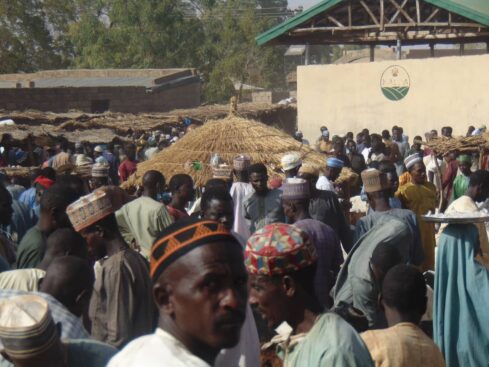
Ahamed Isa is the Tafidan Illela. According to him, “We the people of Illela and the people of Konni are the same. Before the Europeans came, Illela was under Konni. Initially, Konni had an Emir. If you go to Kebbi, close to Sokoto, all their chiefs are called Emir. Up till now, they have an Emir there and we are under him. We are the same in terms of ethnicity; we are all Hausa, that is, we are Gobirawa.”
French split us
From here, if we want to go to Friday prayers, we have to go to Kalmalo, a neighbouring community. That is where the district head resides; and he is answerable to Konni. If the community head of Kalmalo wanted to go and visit the Sultan in Konni, our community leaders will have to escort him to Konni. Kalmalo is ahead of us in terms of leadership. By the time the Europeans came, they split us from Konni. Konni was then put in Niger while we were placed in Nigeria.”
Daura dialect spoken in Niger
Murtala Adamu Fele, the chairman of Baure Local Government, Katsina State adds, “As it is known, Baure is located along the border between the two countries. Before the creation of the two countries, it was just one emirate. The three cities in Niger Republic, including Magariya and Tinkum, were part of Daura Emirate. They speak the Daura dialect. They are Hausa. In Hausa we have dialects; for example, the Katsina, Sokoto and Kano dialects. The communities in Niger along the borderline with Nigeria speak the Daura dialect. So, we have a lot in common.”
Everybody speaks Hausa
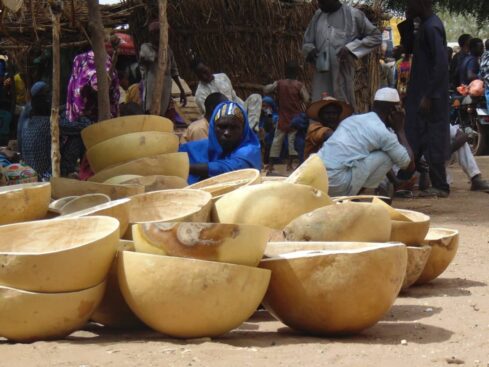
“Almost everybody speaks Hausa as their native language. If you go to mosque, church, market, Hausa is the only language used as medium of communication. The people are commonly farmers, they graze animals, and we grow millet. We have a lot in common. In fact, we are one. When the place was split into two, we still maintained our historical and cultural ties in terms of business, marriage.”
Niger needs many things from us
“We need many things from Niger. There are a lot of commodities which Baure Local Government needs, and Niger needs so many things from Nigeria too. They grow a lot of beans, likewise groundnuts, they have cheese and dates. They need almost everything you can find in our shops,” he adds, revealing other aspects of the similarities and relationship.
Maradi used to be ruled by Katsina
Attahiru Sifawa is a professor of History at the Sokoto State University. He opens up on the shared history of the two countries: “A considerable part of the ancient Katsina Kingdom is now in Niger Republic. Maradi used to be under Katsina and that was after the establishment of Katsina as Hausa state. But after the establishment of colonial rule, the northern part of Katsina was taken over by the French. Just like in the same way, parts of Gobir, parts of Kebbi, were moved to the French.
Kanta ruled Niger
Even during the era of the Kebbi Kingdom, after Kanta established the Kebbi Kingdom, considerable part of northern Niger Republic was under Kanta, under the Kebbi Kingdom. In areas around the Azawad region, a considerable part was under Kebbi, and this includes places like Dossso. There was the Air Kingdom, a Tuareg or Berber Kingdom established by light skinned Buzaye. At one time they were under Songhai and at the zenith of Kebbi’s power, they were under Kebbi. After a while they rebelled against Kebbi and reasserted their independence.’
Kebbi ruled Agadez
Sifawa continues, “At a point in time, the Sultanate of Agadez, the Air Kingdom, the Azawad region, were all under Kebbi. During that period a considerable part of the Hausa states were in Niger Republic. The Hausa states were part of Niger, a greater part of Niger, either under Kebbi, under Zamfara, though at a time Kebbi came to overshadow the Zamfara Kingdom and took over is territory, both in Niger and in Nigeria.”
In considering the size of Niger, he adds, “Niger is very large in terms of land mass. If you divide Niger into two and add to Nigeria, you are almost getting the same size of Nigeria.”
Festival of dialects
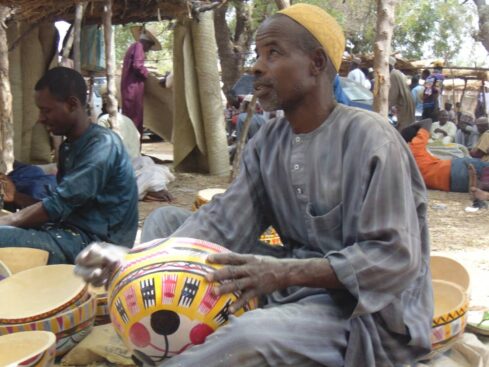
He also considers the dialects spoken in both countries. “When you are talking about the Gobir dialect, which is part of the Sakkwantanci dialect, under Sakkwantanci you have Kabanci, Gobiranci sub dialects. When you are talking about Sakkwatanci, it covers the dialect of Sokoto, Kebbi and Gobir. You have Gobiranci, Kabanci sub dialects of the greater Sakkwatanci.
Many Nigeriens speak Sakkwatanci
“You have a large number of people in Niger Republic speaking the Sakkwatanci Hausa dialect. If you go to parts of Katsina – places like Daura – the dialect they are speaking when you are moving upland into the present day Niger Republic, is the Daura dialect. They used to be the same community. It was just during colonial rule that they were divided. The dialect is the same. Dialect is more or less social and geographical. Wherever you find yourself, in a particular location, you may, overtime develop a common dialect as a result of some social forces.
Hausa replaced Zabarmanci
He explores the elements making up the Sakkwatanci dialect. “In the Sakkwatanci dialect there is a lot of Zabarmanci and Fulfulde. Traces of Zabarmanci and Fulfulde are found in Sakkwatanci because of social interaction. There is a large number of Fulani and Zabarmawa within the Sokoto territory. Their native languages slightly influenced the dialect spoken in Sokoto. They are called Zabarmawa in Hausa.
In the Azawad region of Niger, Zabarmawa are the dominant people. The Azawad is a region covering parts of Niger, Mali and Burkina Faso. Hausa took over Zabarmanci, which used to be their native language. Hausa took over as the lingua franca in the Azawad area. Hausa people used to be long distance traders and they are found in every part of West Africa.”
Arteries of trans Saharan trade
Sifawa looks at the arteries of the trans Saharan trade. “More than 1000 years ago, trans Saharan trade used to flourish. At that time there were important commercial centres. People from North Africa and Arabia used to come to parts of West Africa to trade. Those ancient centres of commerce cut across present day Nigeria and Niger. There was extensive commercial relationship between the Hausa people and people of Niger Republic. Livestock trade is the major important trade between Niger and Nigeria.”
Gobirawa in Niger
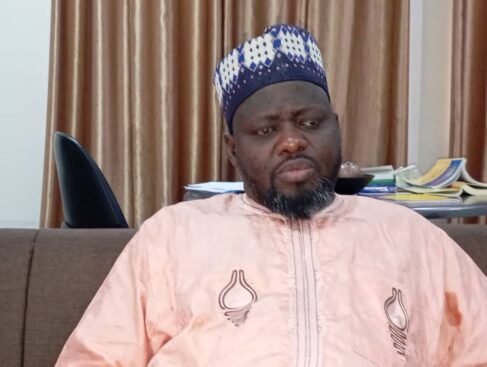
He mentions that there are more Gobirawa in Niger Republic than Nigeria, and provides historical facts to prove this point.
Hear him: “Gobir in particular, at one time in their history, were in central Niger Republic, around the Azben region, even far beyond Agadez in an area before Libya. They started there politically and started to migrate southwards, up till the time when they found themselves within the Rima valley, which is the present day Sokoto.
North-South migration
Sifawa explains this movement: “There was a north south migration because of environmental challenges; people continued to leave the north and move southwards. This is because the south is richer in terms of rainfall, humidity and availability of water resources and other things. That was where they started, but they continued to move southwards up till the time they arrived at the Agadez region. They kept moving up to Birnin Lalle and Maradi, up till the time when they now moved into the ancient Zamfara Kingdom, Alkalawa, their seat of power, lying not very far from Isa.”
After Jihad, Gobir moved into Niger
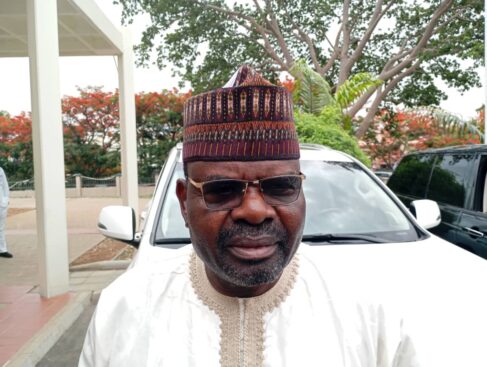
He adds: “A greater part of Gobirawa are now in Niger Republic. After the Sokoto jihad, after the defeat of the Gobir state, the Gobirawa had to move northwards into Niger Republic, and that is when they moved their headquarters. It was at a later time some of them now moved southwards to reoccupy the area they used to occupy before the jihad.
Fadama Dan Halima
“Fadama Dan Halima was a prince who led the Gobirawa back to the central Rima basin. They were at Alkalawa, not very far away from Isa. This Fadama Dan Halima, now known as Sabon Birni, is equally not very far away from Alakalawa, which used to be their headquarters. It is a fertile marshy land because of the Maradi river, Rima river, Bunsuru and Gagare rivers. The confluence of various tributaries makes the area a very extensive fadama land, very marshy and fertile area, and this was what attracted them back to the area.
Sifawa repeats: “After they were defeated in 1808 they fled to Niger Republic and established their new headquarters there. Over time, some of them returned, but a greater part of them, a majority of Gobirawa remained in Niger.”
Cities in Niger Republic, including Magariya and Tinkum, were part of Daura Emirate. They speak the Daura dialect. They are Hausa. In Hausa we have dialects; for example, the Katsina, Sokoto and Kano dialects. The communities in Niger along the borderline with Nigeria speak the Daura dialect. So, we have a lot in common.”
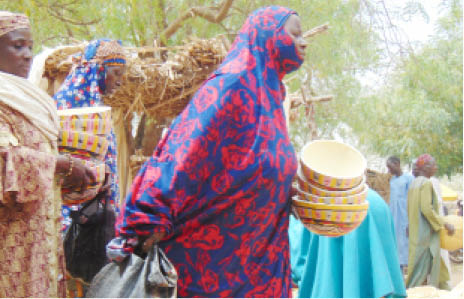
 Join Daily Trust WhatsApp Community For Quick Access To News and Happenings Around You.
Join Daily Trust WhatsApp Community For Quick Access To News and Happenings Around You.


